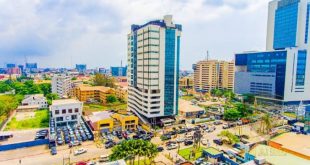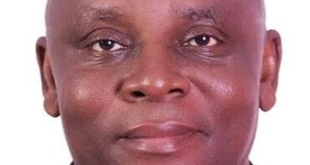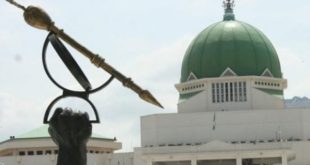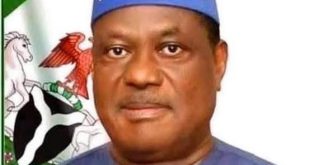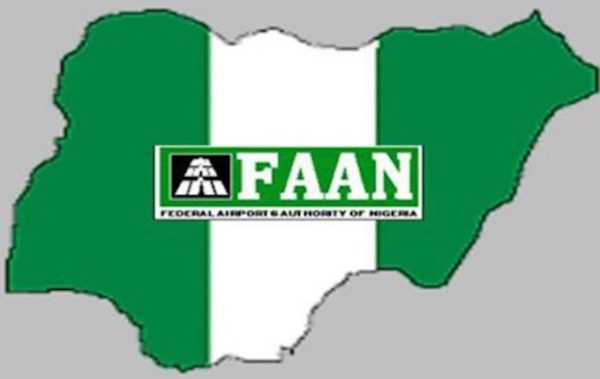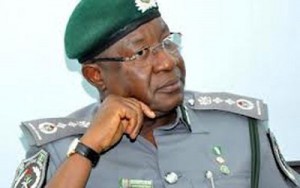
The Economic and Financial Crimes Commission (EFCC) has been very busy in its quest to track down corrupt fellows lately and the immediate past Comptroller-General of Customs, Abdullahi Dikko is the latest to come under the EFCC’s radar following his alleged N3.5 billion fraud with Dikko’s Abuja residence recently raided by some operatives of the EFCC and policemen.
A pressure group identified as the Nigerian Customs Transparency Initiative (NCTI) had earlier petitioned the Independent Corrupt Practices and Other Related Offences Commission (ICPC) over alleged abuse of office, disappearance of some containers and N3.5 billion incurred on the installation of Internet facility by the Customs Service under the management of Dikko.

Following these allegations, the calamities have befallen former CGC Abdullahi Dikko just as it has hit several other past CEOs and Public administrators in recent times, such as the erstwhile Director General of the Nigerian Maritime Administration and Safety Agency (NIMASA) Patrick Akpobolokemi and Sambo Dansuki, the former National Security Adviser to the past President, Goodluck Jonathan, have shown that most of our leaders and CEOs do not sufficiently plan to manage their image after they leave the sit of power.
These leaders always have the opportunity to protect and redeem their public images while they remain in office but they fail to manage the crises that arise after their exit. Therefore, we posit that Nigerian CEOs should be more mindful of their image after they vacate office that the time of power.

There are several ways for a CEO or public servant to ensure that these ugly image rendering allegations don’t show up after his or her exit; they include accountability, zero tolerance for corruption and indiscipline during service.

There is no doubt that Dikko made significant contributions in transforming the infrastructure of the Customs as well as improving the welfare of officers. He also put the Nigeria Customs Service in the spotlight on the global scene but Dikko never disciplined corrupt officers. Several stakeholders lamented his administration to have witnessed the apex of corruption and indiscipline at the Customs.
Most Nigerian CEOs and public servants today believe that dishing out envelops to journalists would be sufficient to cover their wrongdoings and manage their image. They forget that sycophants cannot effectively manage crisis. Although, a journalist can be bribed to write a praiseworthy story at a time or turn a blind-eye to an anomaly at a time, what happens when the CEO is no longer available to cover the sleaze? What happens when the subordinates refuse to cover the messy tracks of their predecessors? What happens when the issue has been blown up by an upright investigative reporter?
Since the Nigeria Customs Service has become synonymous with corruption in recent times, it is pertinent to take a holistic analysis of the problem. The Customs is applauded each time it declares several hundreds of billions as revenue generated for the country and the federal government has been prompt to set the target for the Service each year without a clear strategy on the revenue would be generated. It has been a principle where the end justifies the means for the Service. Isn’t the government the first culprit here? Why give targets to the Customs without a defined statistics on how the revenue ought to be generated? Instead of giving revenue targets to the Customs, why not give world trade targets?
Dikko was a firm believer of the live and let live principle. He was never seen to be firm in the fight against corruption under his administration as the Customs boss. Under his 6-yearstint at the helm of the Nigeria Customs Service, his loyal boys remained in their respective positions and Commands which further heightened the level of corruption the several Customs commands. The situation was such that one could easily find a one star officer disobeying a deputy comptroller and the deputy comptroller would be afraid because the junior officer had connections in Abuja.
All these issues coupled with Dikko’s generosity to everyone around especially his perceived threats defined his managerial style. Today, Dikko is facing challenging times and it is at such times of crisis that friends and institutions that benefitted massively from his magnanimity should stand up to cover for him. The Association of Nigeria Licensed Customs Agents (ANLCA) is one of the apparent benefactors of Dikko’s administration as their headquarters “Dikko House” depicts the level of support they received from Dikko. But ANLCA has quickly become one of those that have relegated to the background when Dikko needs their support.
The truth is that bribery, nepotism, engaging journalists (sycophants) in order to put one in goodwill with everyone while in power does not guarantee that the goodwill and support would remain after your exit. Leaders should be more concerned about the legacy they leave behind than their perceived image while they are in office. The traits that they should embrace are accountability, transparency, good public relations and media relations.
By Kenneth Jukpor
 MMS PLUS NG – Maritime, Aviation, Business, Oil and Gas News Online Newspaper with coverage in Maritime, Oil and Gas, Aviation, Power and Energy as well as Financial News
MMS PLUS NG – Maritime, Aviation, Business, Oil and Gas News Online Newspaper with coverage in Maritime, Oil and Gas, Aviation, Power and Energy as well as Financial News



